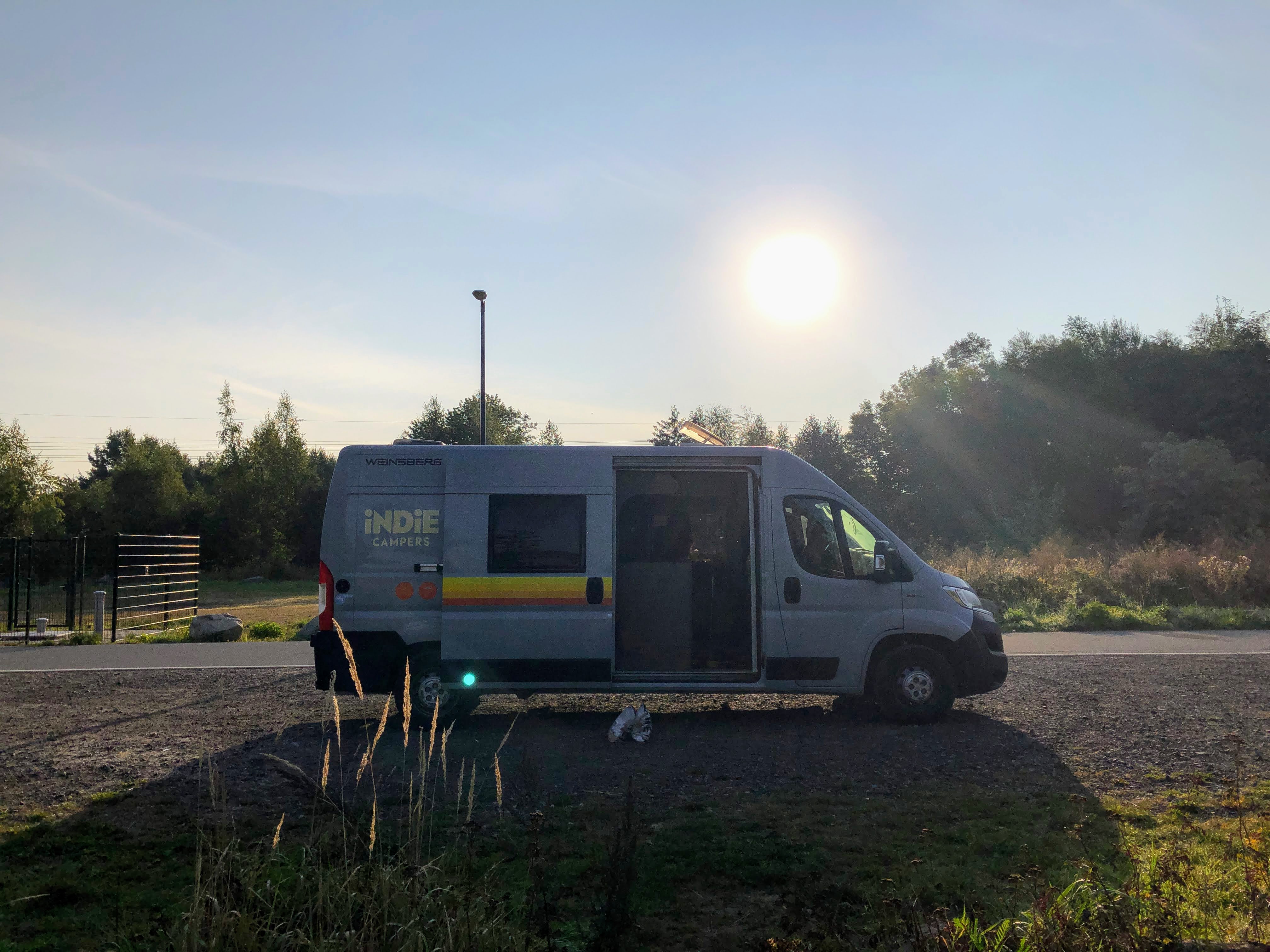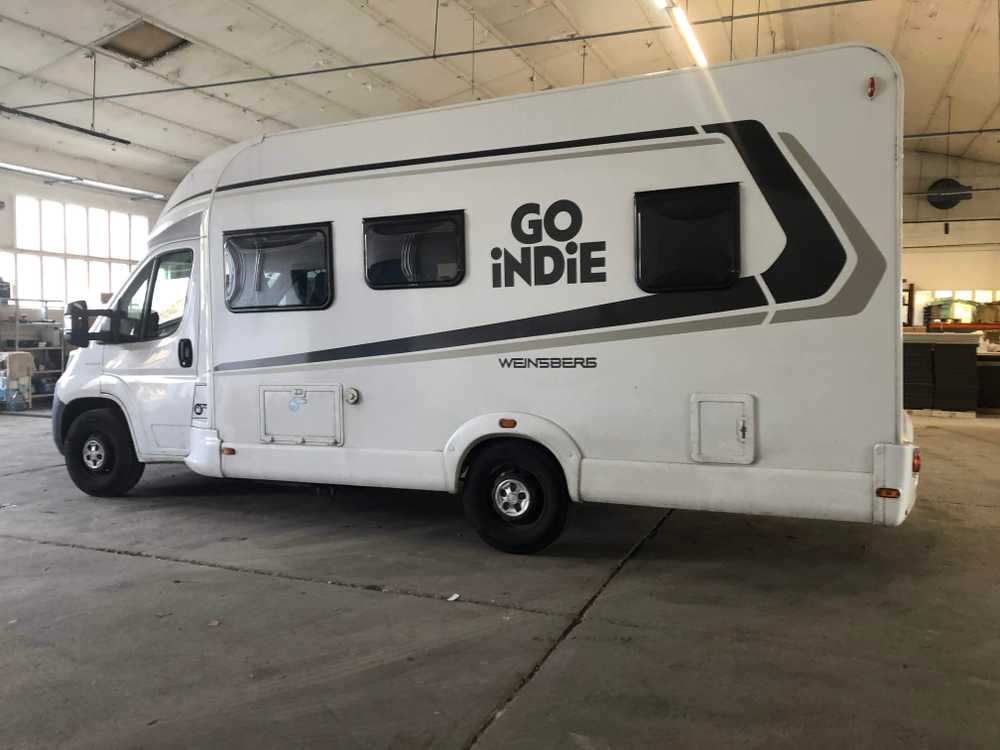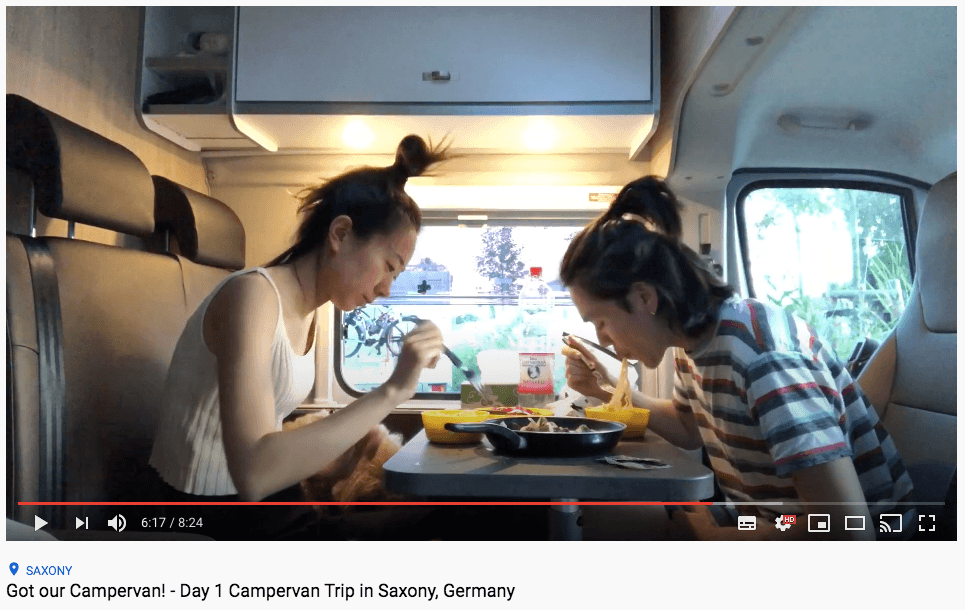Life on a Campervan
Before you know it, your face is greasy, your feet cold, and you wonder, why are you doing this? Nah, that’s not representative of life on a campervan, although I’ve felt all that in my recent week-long campervan trip with my wife and dog.
 Our motor home for a week in September 2020.
Our motor home for a week in September 2020.
Realising that not everyone may have the opportunity to travel in a campervan, I am recounting my experience to try and share what life on a campervan is like. How is it different from the usual hotel and rental car experience? What are the ugly sides that van lifers don’t talk about? Would I do it again? As usual with what I publish here, I write this to remind myself and to share my take with you.
So, what is it like?
A campervan is like a sparrow, small but complete with all the vital organs necessary for living. You can cook, drink cold and hot beverages, wash the dishes, wash yourself, shit, pee, sleep, read, talk privately, talk openly, watch a movie, and play with your dog inside a campervan. It’s just like a miniature home, except for two major differences: you take care of everything that goes in and out of it, and it has wheels.
 A larger model of the same campervan. We rented this for our first campervan trip in November 2019.
A larger model of the same campervan. We rented this for our first campervan trip in November 2019.
Driving the campervan is very similar to driving a big-sized car. My rental campervan was a manual 2019 Fiat Ducato, which is among the smaller models available. My previous rental was a larger model Fiat Ducato, and it felt much more comfortable because of how spacious it is, but it comes with a penalty in terms of where you can park. The only real difference in driving is that you need to be careful to turn off the gas valve and secure everything before moving off. Oh, and the higher point of view from the driver’s seat makes for, in my opinion, a pleasant “king of the road” type of driving experience.
Planning for a campsite is only mandatory every 3 to 4 nights, so you top up freshwater, empty the wastewater tanks, and if desired, fully recharge the leisure battery.
The leisure battery, which powers the fridge and interior lights that are essential at night gets recharged during driving but it’s often just to around 75 percent. That’s just enough to keep the fridge running on MIN for a night before needing at least another drive-recharge. Other things that leisure battery is used for: powering the water pump (no electricity, no water, which also means no toilet flushing) and charging phones and cameras.
After being fully serviced, you are free to explore with unparalleled agility for days before planning to reach a proper campsite again. It’s a rhythm that you can get used to within a week. The freedom of those in-between days allows you to park anywhere you want (within legal constraints) for the night, which affords us the ability to truly get away from humanity.
A campervan campsite, or a Wohnmobil Stellplatz as it’s called in Germany, is usually full in summer and empty in winter. We didn’t talk to any other campers in the campsites throughout our trip because everyone was tending to their own needs, be that reading a book on pop-up chairs, dusting a carpet, or grilling food on a portable stovetop. So were we. I haven’t encountered a single campervan that had only one person living in it, so I guess that socialising is already aplenty aboard each motor home.
Cooking on board a campervan is a joy because you get to do it in all kinds of environments. We’ve cooked with our side door open and facing the sun as it sets beyond the lake, in a hillside parking lot before a hike, and at a stopover next to the Autobahn. I also relish being forced by the space constraints to watch my partner cook (or she, me, whenever it’s my turn).
The chemical in chemical toilet is important. Typically blue, these chemicals for dissolving shit and masking the odour come in either liquid or tablet form and some should be kept in the vehicle at all times unless you are tolerant to foul odours. I did not have these for most of our recent trip and I held my breath every time I opened the toilet door. Jesus, this is the stuff my body makes? We soon started a regiment of peeing and pooping in nature or public toilets whenever it was viable to reduce the assault on our olfactory senses. Despite the toilet door, a campervan is still a small space that readily circulates smells.
About these chemical products: I believe some of these are more harmful to the environment (containing formaldehyde) than others (containing enzymes). I’ve yet to dive deep into the topic but I when I re-read this paragraph before my next trip, I probably will.
Living on a campervan entails being attuned to levels. Unlike a city apartment, every drop of water that drips from your tap is put into the fresh water tank yourself. The grey water tank captures your washing fluids and the brown water tank, also known as the chemical toilet cassette, holds your bodily fluids, the levels of which you need to monitor using either an electronic indicator or plain sight. Then there’s the leisure battery level for lights, water pumps and more, and the propane gas tank for cooking and heating. I’ve found that living on a campervan makes me more aware of the resources I consume and discharge as the pipes beyond the toilet bowl, sink, gas stove, and electrical sockets come under my consistent gaze.
Sleeping in a campervan is surprisingly comfortable if you make your bed well. The company we rented from, Indie Campers, didn’t provide us with bedding this time like they did in our previous rental, apparently due to a change of policy, so we overnighted without bedsheets, pillows, or blankets once. It was horrible and I think I only slept for an hour because my feet were cold through and through and I had my neck bent at a weird angle all night.
After that night, we sacrificed 3 hours to drive home to our apartment in Berlin and picked up our bedding kit. Our sleep quality then became almost comparable to that which we get in our city apartment, which is surprisingly good.
Would I do it again? Yes. I think of it as real camping — you know, with a tent — but with more creature comforts, which means I get to be away from people and reconnect with nature, myself, and the few I live aboard with. I know that once in a while, that’s exactly what I want most.
As a new ritual, I invest energy and time to capture, edit, and publish vlogs of my travels because I realised I can never remember the details even though I love reminiscing. You can view these public vlogs on my YouTube channel:
If you’re thinking of renting a campervan, you can consider using Indie Campers, the company I’ve rented from twice so far and am happy with. Booking using this link will give me some credits at no costs to you: Indie Campers.

